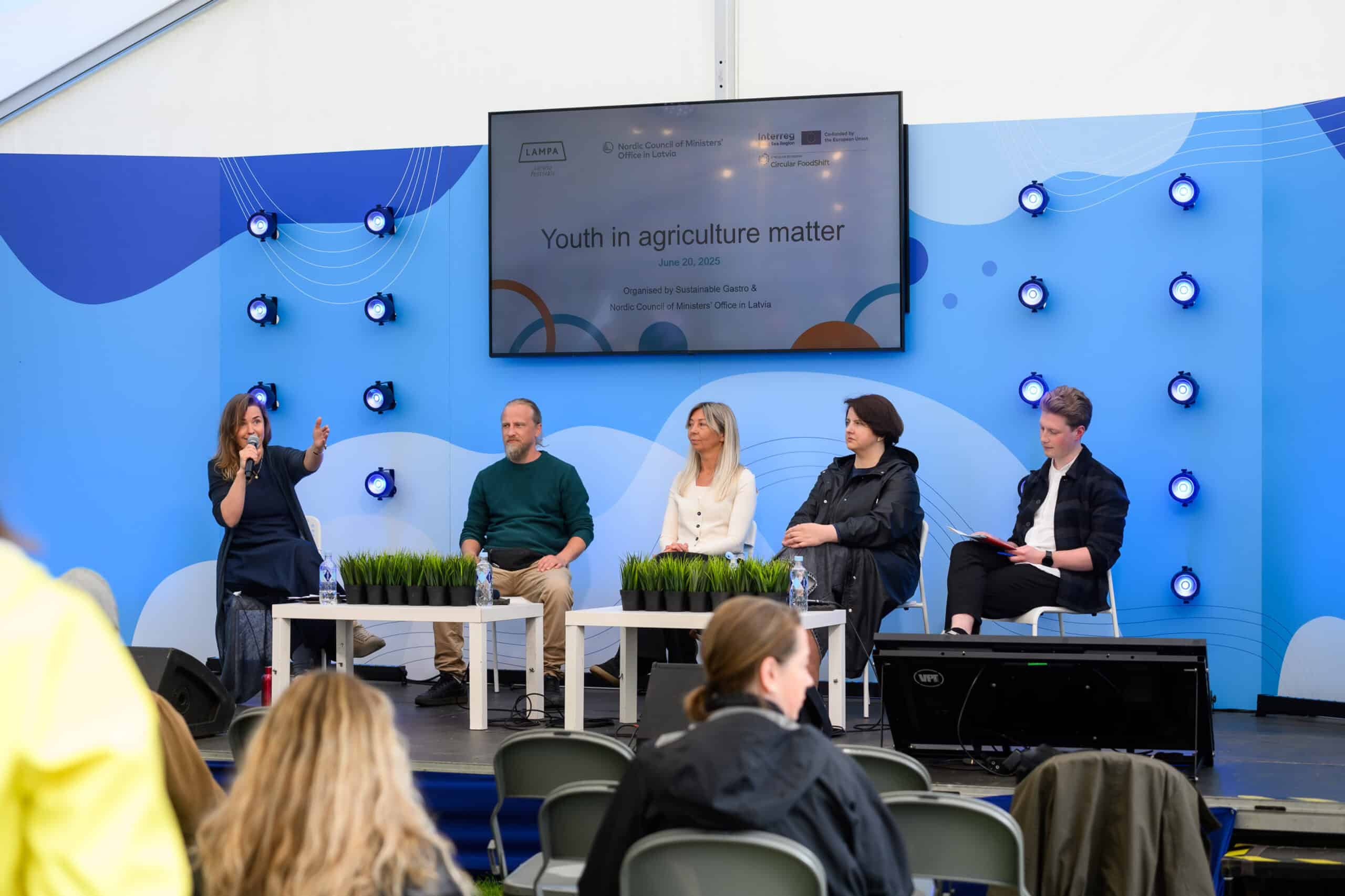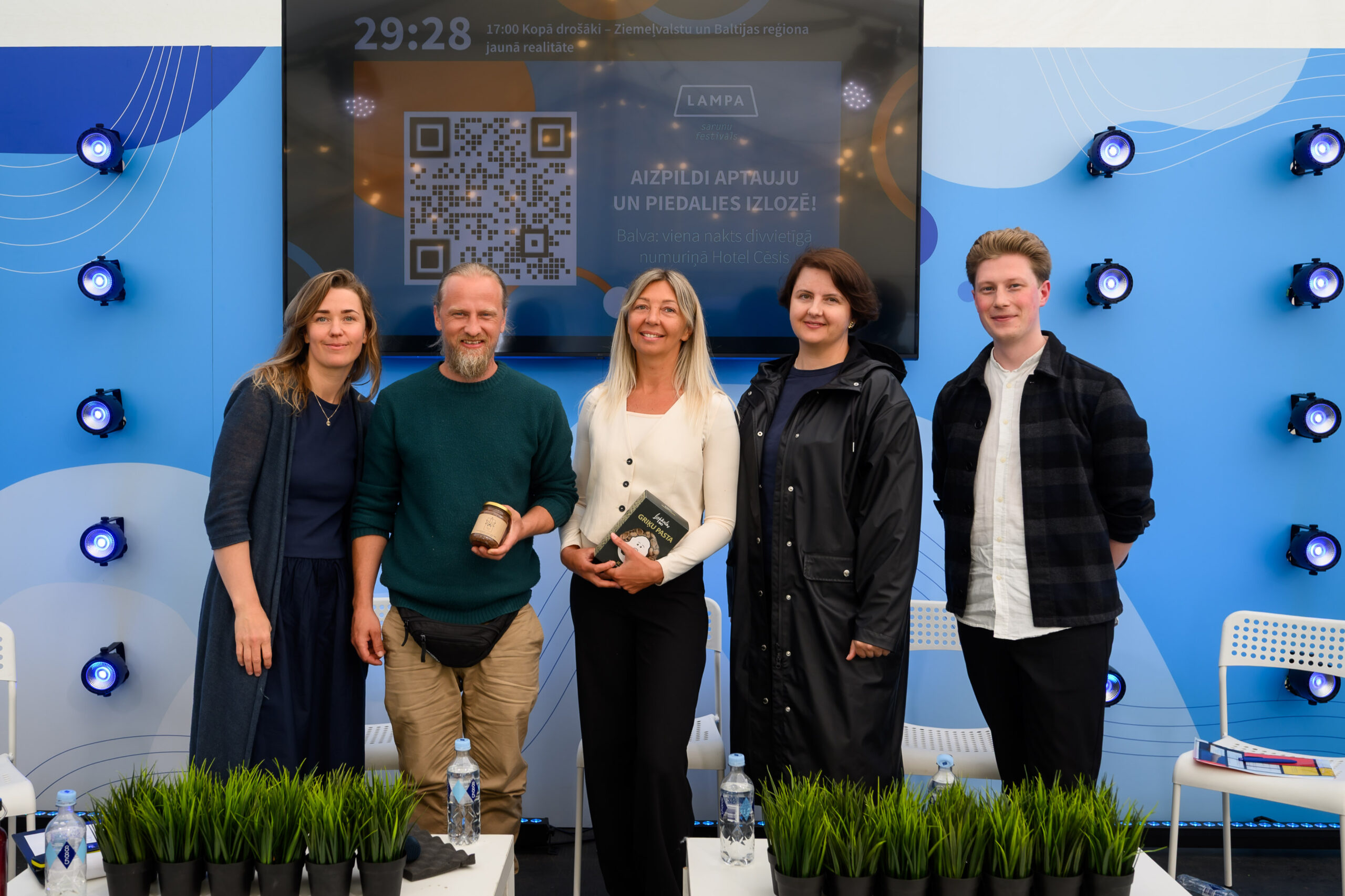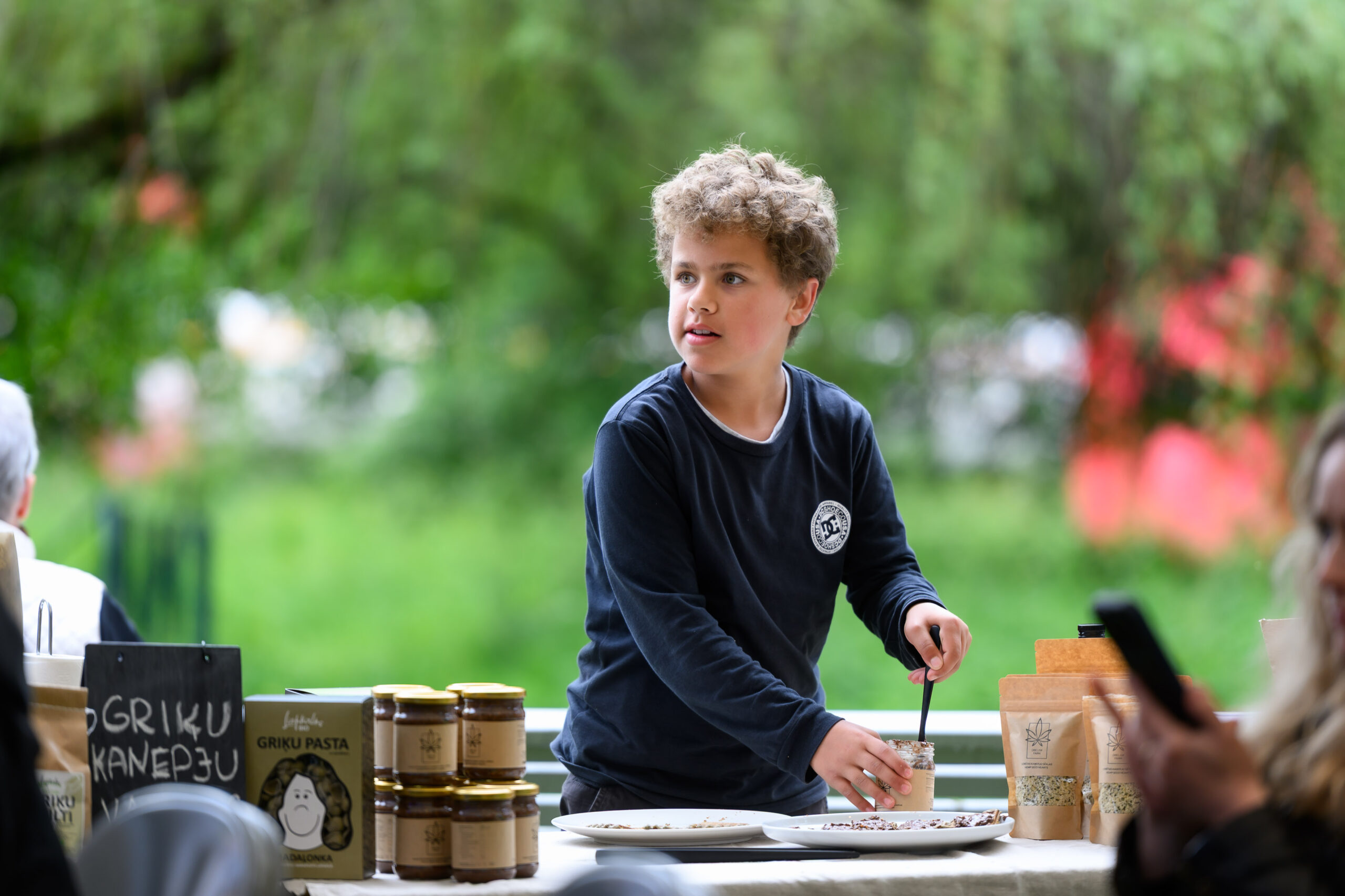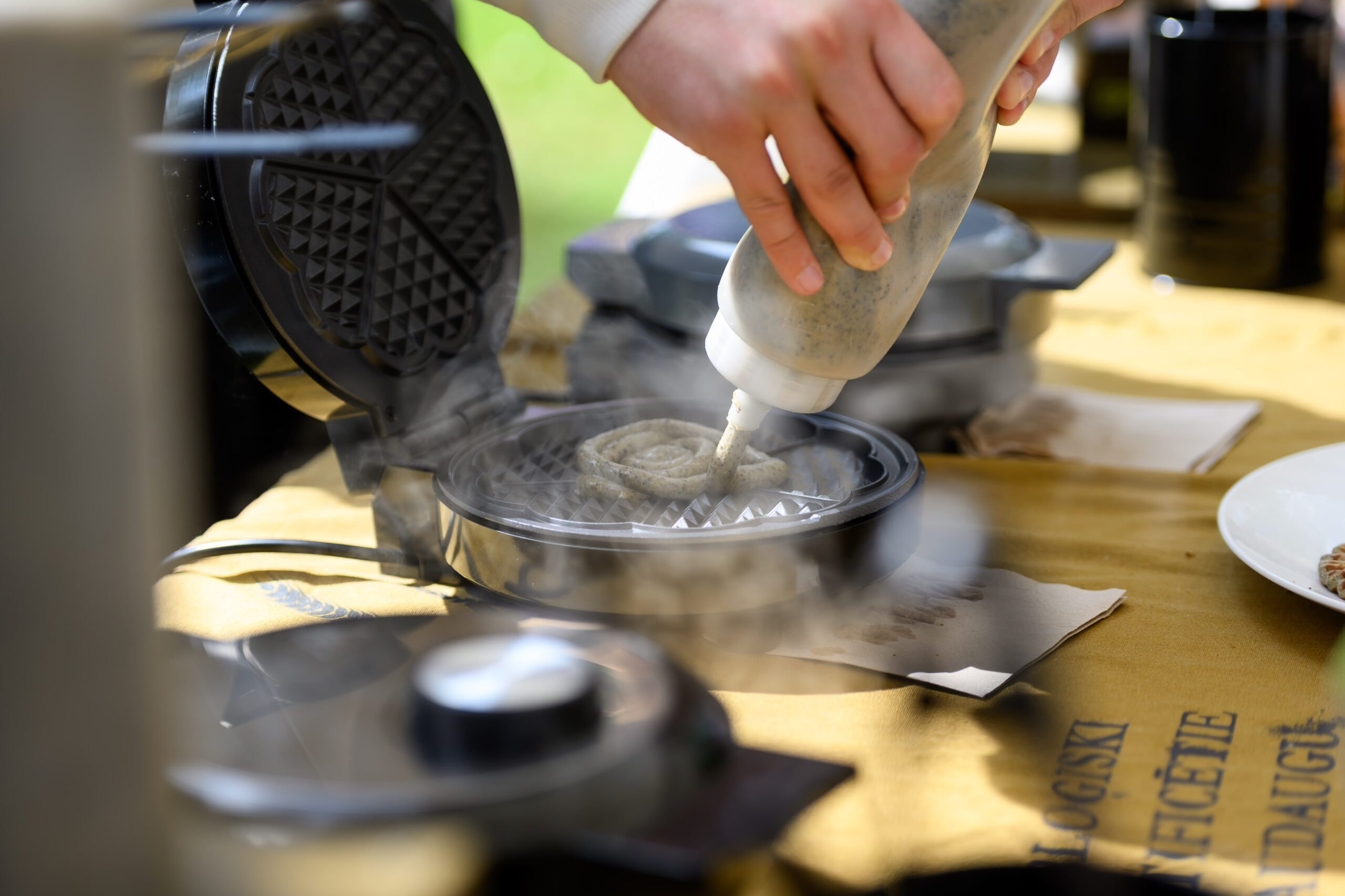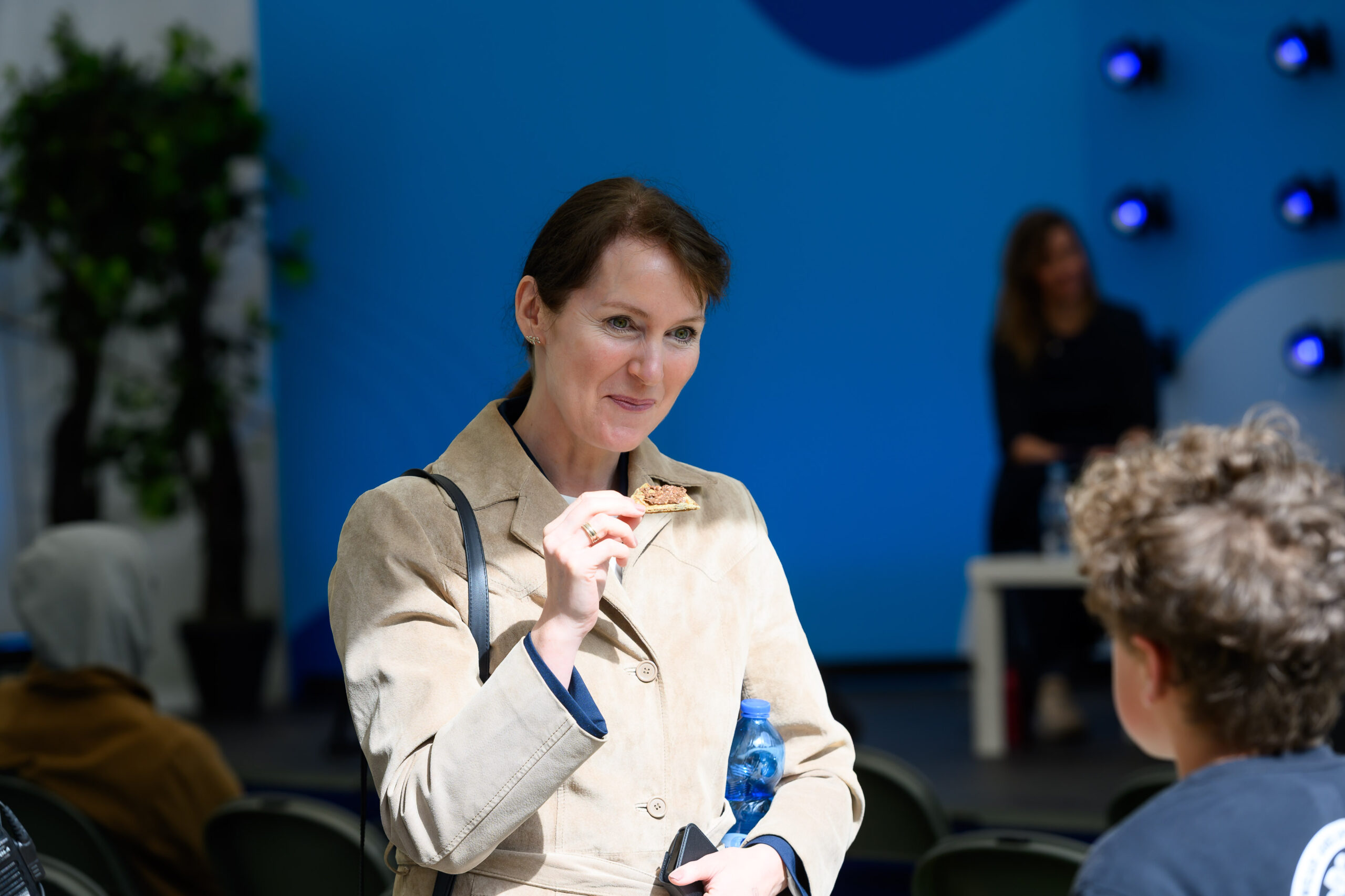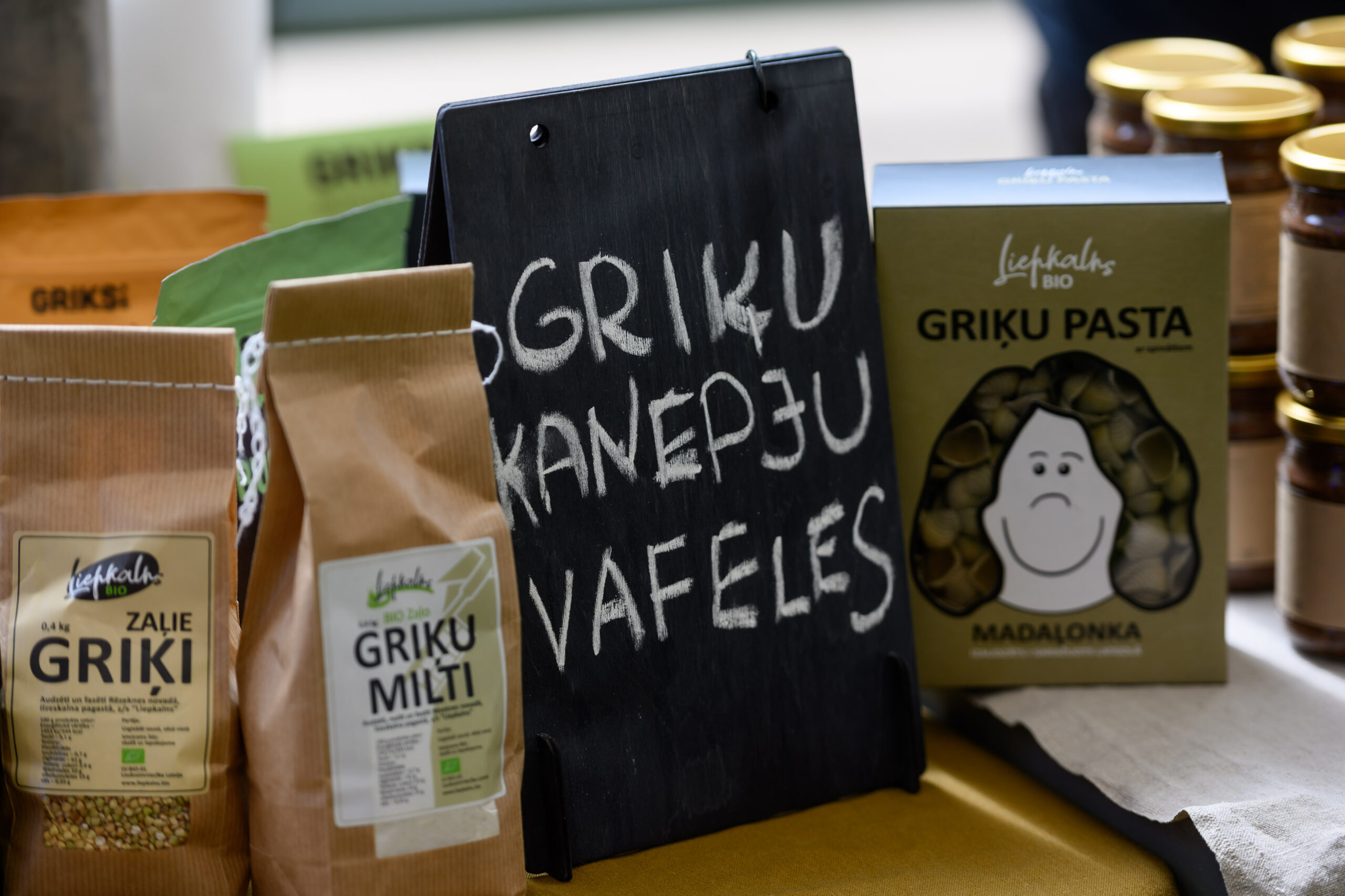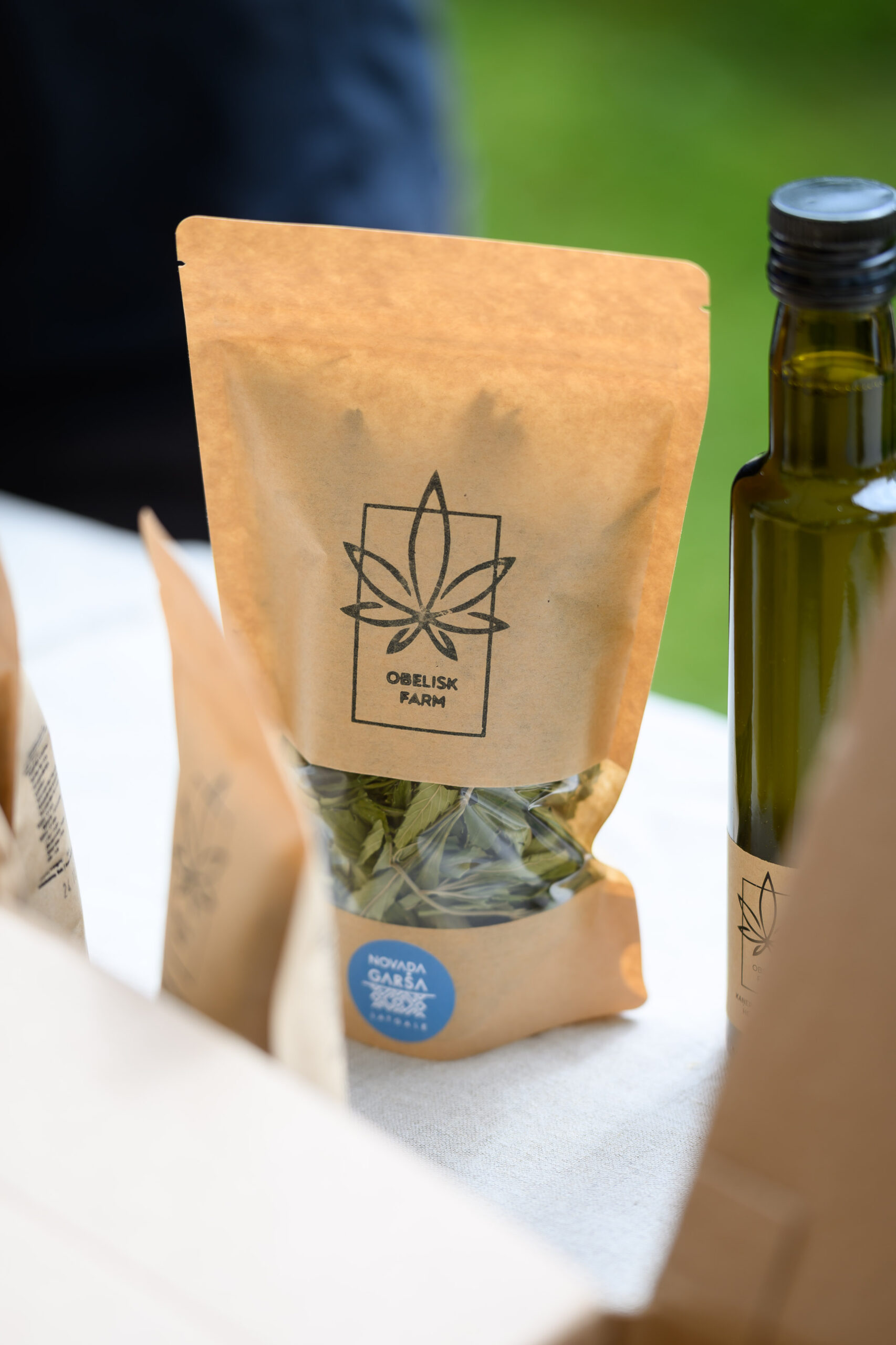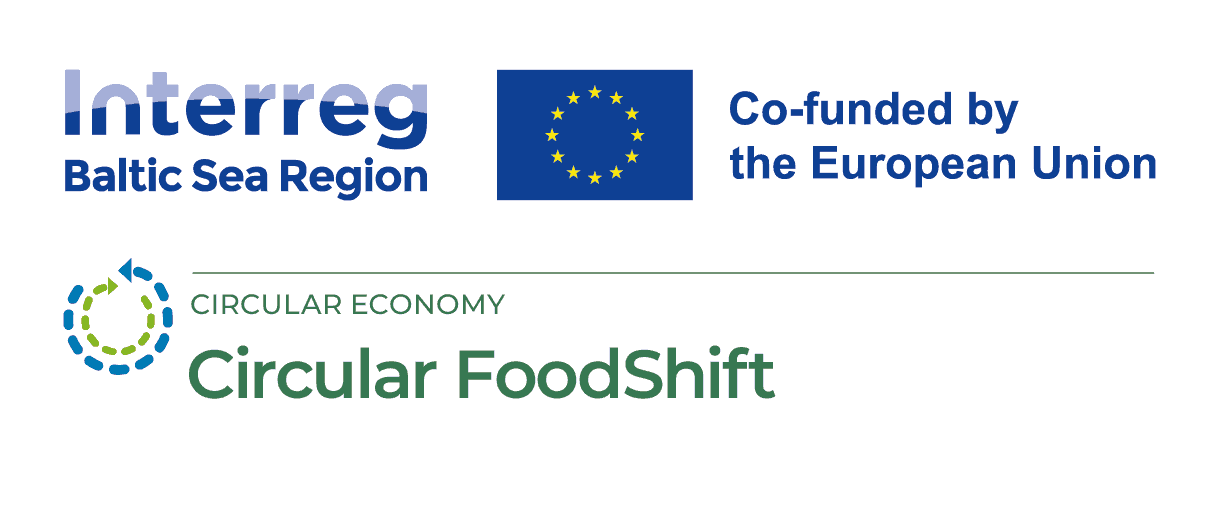
Lessen the schools’ environmental impact by reducing student food waste and food miles
22 July 2025
At this year’s Lampa Festival in Cēsi in Latvia, Sustainable Gastro and the Nordic Council of Ministers’ Office in Latvia, brought together researchers, farmers, educators, and innovators who are working on the frontlines of change—from school gardens to food systems policy, from hemp fields to snack production. The panel discussion focused on recognising the role of youth as agents of change in our regional food system.
Moderated by Lāsma Ozola, head of the Waste-Free Community of Cēsi County Municipality, we explored a crucial issue that goes far beyond our rural economies—it’s about what we eat, how we grow it, and who benefits from it. Our food choices shape not only our health, but also the landscape of our countryside and the vitality of our rural communities. If we want farming to support both people and the planet, we need to rethink how we produce food—shifting toward practices that are fairer, greener, and more resilient. That transformation needs bold ideas, diverse voices, and the energy of a new generation.
While the conversation was running, our young chefs/food producers made the event so special by cooking and serving organic hemp & buckwheat waffles – hands-on, interesting, and truly delicious!
Speakers
- Julia Danilina, Founder of the organic farm Liepkalns (“Buckwheat residence”) and the snack brand Griksi in Latgale.
She started as a young woman in farming and want to help more young people turn passion for food and health into a viable livelihood. - Andris Višņevskis, Hemp Farmer & Educator at Obelisk Farm in Latgale.
An expert in all thing’s hemp. Shares his knowledge of cultivation and small-scale processing while promoting the environmental and economic benefits of hemp.
His mission is to show young people that farming can be entrepreneurial, sustainable, and even cool. - Rita Ivanova, Senior Project Manager at Daugavpils University.
She leads sustainable school food development in the Latgale region with the aim of bringing positive changes in the food supply chain and food waste reduction in school canteens.
She believes that the future of farming begins in the classroom. - Jonas Kačkus Tybjerg, Junior Research Fellow at Nordregio in Stockholm.
He works in the research fields of regional development, policy, and planning, with a particular. In his opinion, young people’s participation is crucial if for a smart, just, and green transitions in agriculture.
Some final words from the panel discussion:
“Engaging young people in agriculture is crucial for the sustainability and innovation of the industry. Schools and municipalities play an important role in bridging the gap between young people and the agricultural sector. Introducing children to farming from an early age through school gardening programmes or local agricultural events can also nurture a genuine interest, even if they are not initially from a farming background. It also provides benefits to local and regional farmers and the broader community, and lessens schools’ environmental impact by reducing student food waste and food miles.”






